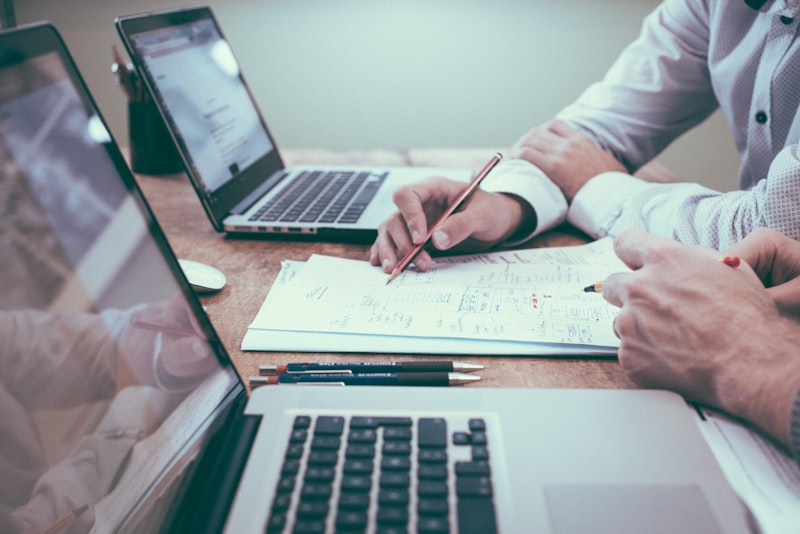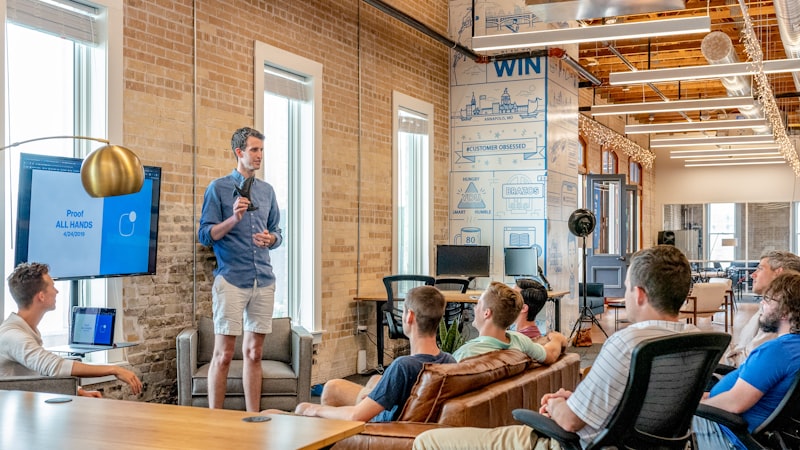
How to Build Confidence for Your Next Interview
Confidence isn't just about feeling good, it's the foundation of interview success. When you're confident, you communicate more effectively, think more clearly, and make a stronger impression on hiring managers. But confidence doesn't happen by accident; it's built through deliberate preparation and mindset work.
The Psychology of Interview Confidence
Confidence in interviews comes from three key sources: competence (knowing you can do the job), preparation (feeling ready for any question), and mindset (believing in your ability to succeed). When these three elements align, you project the kind of self-assurance that makes employers want to hire you.
Mental Preparation: Building Your Confidence Foundation
1. Know Your Value Deeply
Confidence starts with truly understanding what you bring to the table. This goes beyond listing your skills, it's about recognizing the unique value you create.
The value inventory exercise:
- Quantify your impact: What measurable results have you achieved? (e.g., "Increased sales by 30%," "Reduced costs by $50K")
- Identify your unique strengths: What do you do better than most people in your field?
- Document your problem-solving abilities: What complex challenges have you successfully navigated?
- Recognize your growth: How have you evolved and improved over time?
Practice articulating your value: Create a 30-second "value proposition" that you can deliver naturally: "I'm a [role] who specializes in [key strength]. I've helped [specific achievement] by [how you did it]. What sets me apart is [unique differentiator]."
2. Master the Art of Positive Visualization
Visualization isn't just wishful thinking, it's a powerful psychological tool that primes your brain for success.
The success visualization technique:
- Find a quiet space and close your eyes
- Imagine walking into the interview feeling calm and prepared
- Visualize yourself answering questions with clarity and confidence
- Picture the interviewer nodding approvingly and engaging positively
- Feel the satisfaction of a successful interview
- Practice this daily for 5-10 minutes leading up to your interview
Pro tip: The more detailed your visualization, the more effective it becomes. Include specific details like the room, the interviewer's reactions, and how you feel in your body.
3. Prepare Beyond the Basics
Thorough preparation is the bedrock of confidence. When you know you've done everything possible to prepare, you can relax and focus on being present during the interview.
Comprehensive preparation checklist:
- Company research: Mission, values, recent news, competitors, challenges
- Role analysis: Job requirements, team structure, reporting relationships
- Industry knowledge: Trends, challenges, opportunities
- Question preparation: Practice answers for common questions using the STAR method
- Your questions: Prepare 5-7 thoughtful questions that demonstrate your interest
- Technical preparation: Review any skills or knowledge areas mentioned in the job description
Physical Preparation: Projecting Confidence Through Your Presence
Your body language and physical presence communicate confidence before you even speak. Research shows that 55% of communication is body language, 38% is tone of voice, and only 7% is the actual words you say.
1. Master Confident Body Language
The power pose technique:
- Stand tall with shoulders back and chest open
- Plant your feet firmly on the ground
- Use open gestures that take up space
- Maintain steady eye contact (aim for 60-70% of the time)
- Lean slightly forward to show engagement
- Avoid closed-off positions like crossed arms or legs
Practice the "superhero pose": Before your interview, spend 2 minutes in a power pose-stand with your feet apart, hands on hips, chest out. This actually increases testosterone and decreases cortisol, making you feel more confident.
2. Develop a Confident Voice
Your voice is a powerful tool for projecting confidence and authority.
Voice confidence techniques:
- Speak at a moderate pace (not too fast, not too slow)
- Use a lower pitch when possible (higher pitches can sound uncertain)
- Project your voice without shouting
- Eliminate filler words like "um," "uh," "like," "you know"
- Use pauses effectively instead of filler words
- Vary your tone to keep the interviewer engaged
Practice exercise: Record yourself answering interview questions and listen for areas to improve. Focus on speaking clearly and confidently.
3. Dress for Success and Comfort
Your appearance should make you feel powerful and professional, not self-conscious.
The confidence wardrobe:
- Choose clothes that fit well and make you feel attractive
- Opt for professional colors that convey authority (navy, charcoal, black)
- Ensure everything is clean, pressed, and in good condition
- Wear comfortable shoes that you can walk confidently in
- Keep accessories minimal and professional
- Test your outfit beforehand to ensure you feel comfortable moving and sitting
Day-of Strategies: Maintaining Confidence When It Matters Most
1. Create a Confidence-Building Morning Routine
How you start your day sets the tone for your entire interview experience.
The confidence morning routine:
- Get 7-8 hours of sleep the night before
- Wake up early to avoid rushing
- Eat a nutritious breakfast that provides sustained energy
- Exercise lightly (even a 10-minute walk) to boost endorphins
- Listen to uplifting music or a motivational podcast
- Review your key talking points one final time
2. Pre-Interview Confidence Boosters
The hour before your interview:
- Arrive 15 minutes early to settle in and get comfortable
- Practice deep breathing to calm your nervous system
- Review your value proposition and key achievements
- Visualize success one more time
- Use positive affirmations ("I am prepared, I am qualified, I will succeed")
- Avoid negative self-talk or last-minute cramming
3. During the Interview: Staying Confident Under Pressure
Confidence maintenance strategies:
- Listen actively and take notes if appropriate
- Take your time to think before answering complex questions
- Ask clarifying questions when you need more information
- Use the interviewer's name to build rapport
- Smile genuinely and show enthusiasm
- If you don't know something, admit it confidently and explain how you'd find out
Building Long-term Interview Confidence
1. Continuous Skill Development
Confidence grows when you know you're getting better at what you do.
Ongoing development strategies:
- Stay current with industry trends through publications, podcasts, and courses
- Take on challenging projects that push your comfort zone
- Seek feedback regularly from mentors and colleagues
- Develop new skills that are in demand in your field
- Join professional associations and attend industry events
2. Practice Makes Perfect
The more you practice, the more natural confidence becomes.
Regular practice activities:
- Conduct mock interviews with friends, family, or career coaches
- Record yourself answering common questions
- Join Toastmasters or similar speaking groups
- Practice elevator pitches in networking situations
- Volunteer for presentations at work or in professional groups
3. Learn from Every Experience
Each interview is a learning opportunity that builds your confidence for the next one.
Post-interview reflection:
- What went well? Celebrate your successes
- What could be improved? Identify specific areas for growth
- What did you learn? About the company, role, or yourself
- How did you feel? Track your confidence levels over time
- What will you do differently? Create an action plan for improvement
The Confidence Mindset: Your Secret Weapon
True interview confidence comes from a mindset that says, "I have value to offer, and I'm excited to share it." This isn't arrogance, it's a healthy recognition of your worth and potential.
Key confidence mindset principles:
- You're interviewing them too-you're evaluating if this is the right fit
- You have unique value that no other candidate brings
- You're prepared and ready to handle whatever comes your way
- You deserve success and are worthy of great opportunities
- Every interview is practice for the one that will change your life
Remember, confidence is a skill that can be developed. The more you practice these techniques, the more natural they become. Start implementing these strategies today, and watch your interview confidence soar.



